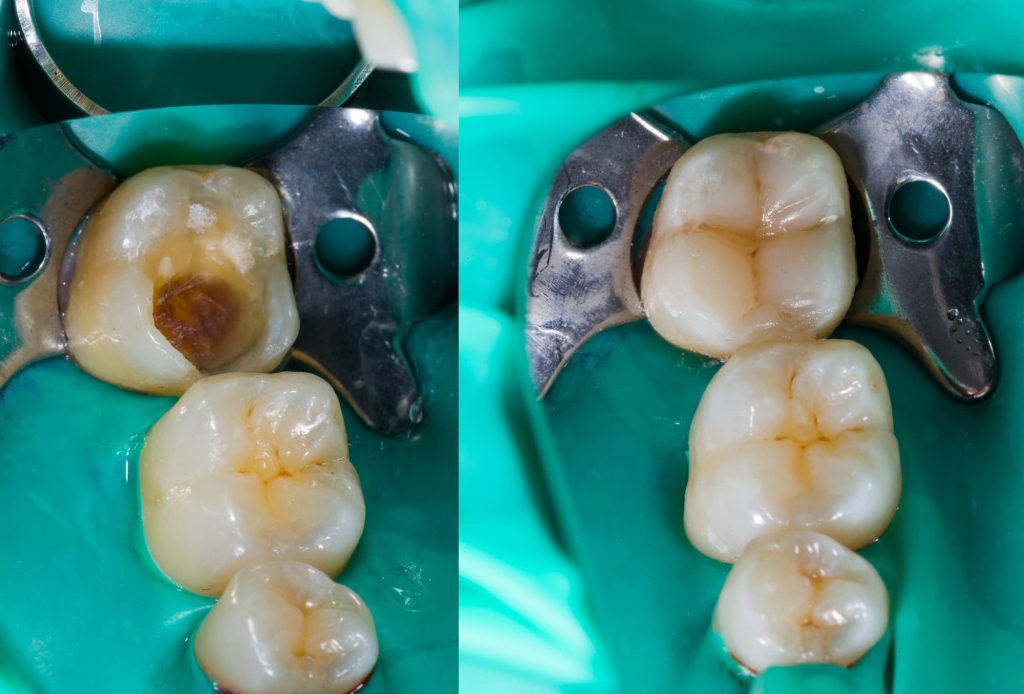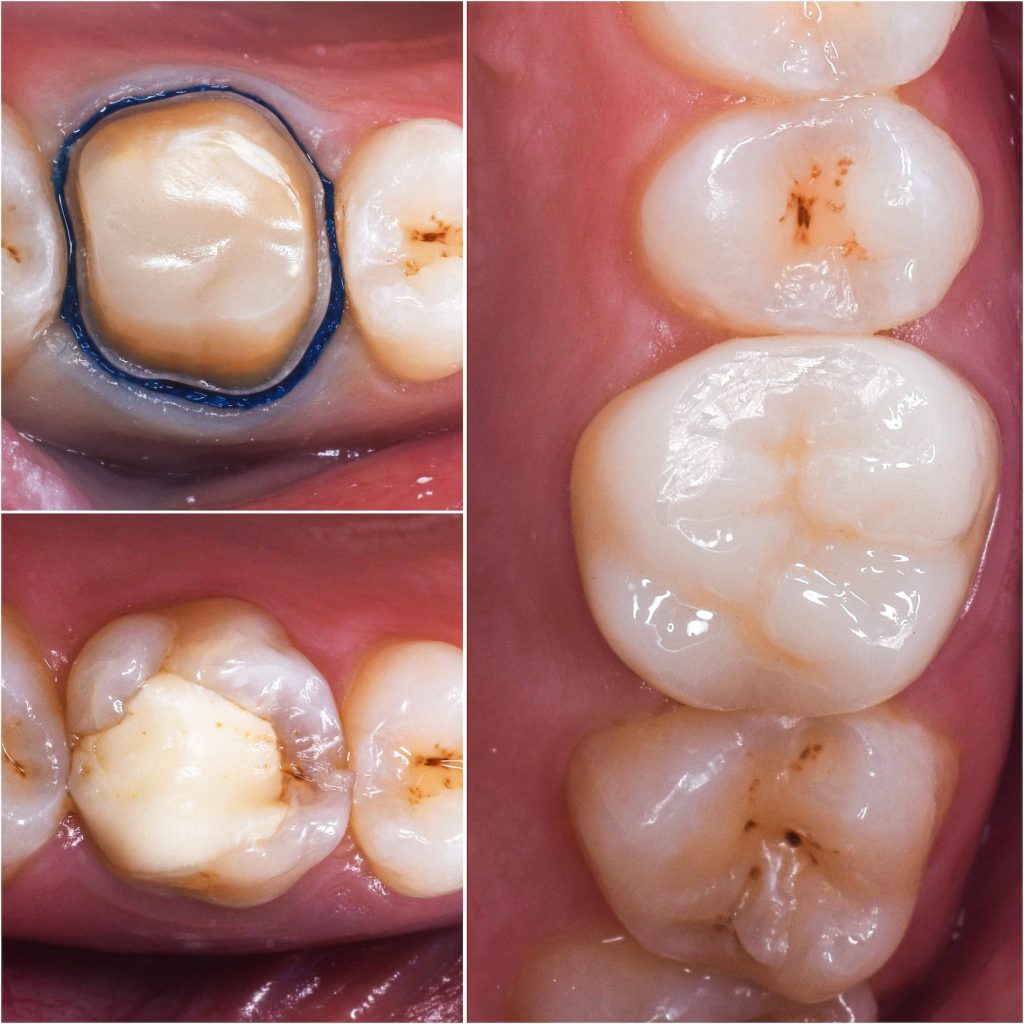What is tooth decay?
Tooth decay, also known as cavities or dental caries, starts when bacteria in your mouth feast on the sugars and starches left behind from the food and drinks you consume. These bacteria produce acids that attack the hard outer layer of your teeth called enamel. Over time, this acid weakens the enamel, creating tiny holes or cavities. If not addressed through proper oral hygiene like brushing and flossing, or by visiting the dentist regularly, these cavities can grow bigger and deeper, causing pain, infection, and even tooth loss. Regular brushing, flossing, and dental check-ups can help prevent tooth decay and maintain good oral health.
How can I fix tooth decay?
Luckily, cavities can be fixed through various types of dental fillings depending on the severity of the decay and/or if your nerve is affected. This is why it is crucial that the decay is removed promptly and the tooth is repaired as you may require alternative treatment such as root canal therapy or extraction. We provide two common types of tooth coloured fillings:
Composite resin fillings
Made of a mixture of plastic and fine glass particles, composite resin fillings are tooth-coloured and can be customised to match the shade of the natural teeth, providing a more aesthetically pleasing result compared to traditional metal amalgam fillings.
These types of fillings offer several advantages over traditional amalgam fillings, including:
- Preservation of tooth structure: Unlike metal fillings, composite resin fillings require less removal of healthy tooth structure, helping to preserve the integrity of the tooth.
- Versatility: Composite resin can be used to repair teeth in both the front and back of the mouth, providing versatile treatment options.
- Reduced sensitivity to temperature changes: Composite resin fillings do not conduct heat and cold as much as metal fillings, reducing the risk of sensitivity to temperature changes.
However, composite resin fillings may not be suitable for all situations, particularly in areas of the mouth that are subjected to heavy chewing forces. Your dentist can provide guidance on whether composite resin fillings are the best option for your specific dental needs.


Porcelain fillings
Porcelain fillings, also known as inlays or onlays, are a type of dental restoration used to repair teeth that have been affected by moderate to severe decay, fractures, or damage. Unlike traditional fillings made of metal or composite resin, porcelain fillings are crafted from high-quality dental porcelain, which closely mimics the appearance and translucency of natural tooth enamel.
Porcelain fillings offer several advantages over other types of dental restorations, including:
Aesthetic appeal
Porcelain fillings closely resemble natural tooth enamel in both color and translucency, providing a highly aesthetic result that is virtually indistinguishable from the surrounding teeth.
Durability
Porcelain is a durable and long-lasting material that can withstand the forces of chewing and biting, providing a reliable restoration that can last for many years with proper care.
Stain resistance
Porcelain is highly resistant to staining, helping to maintain the natural beauty of your smile over time.
Biocompatibility
Porcelain is biocompatible, meaning it is well-tolerated by the body and unlikely to cause allergic reactions or sensitivity.
Get in touch with us to discuss the types of fillings suitable for you.
To schedule an appointment with Newport Family Dentist, simply give us a call or use our convenient online booking system.

